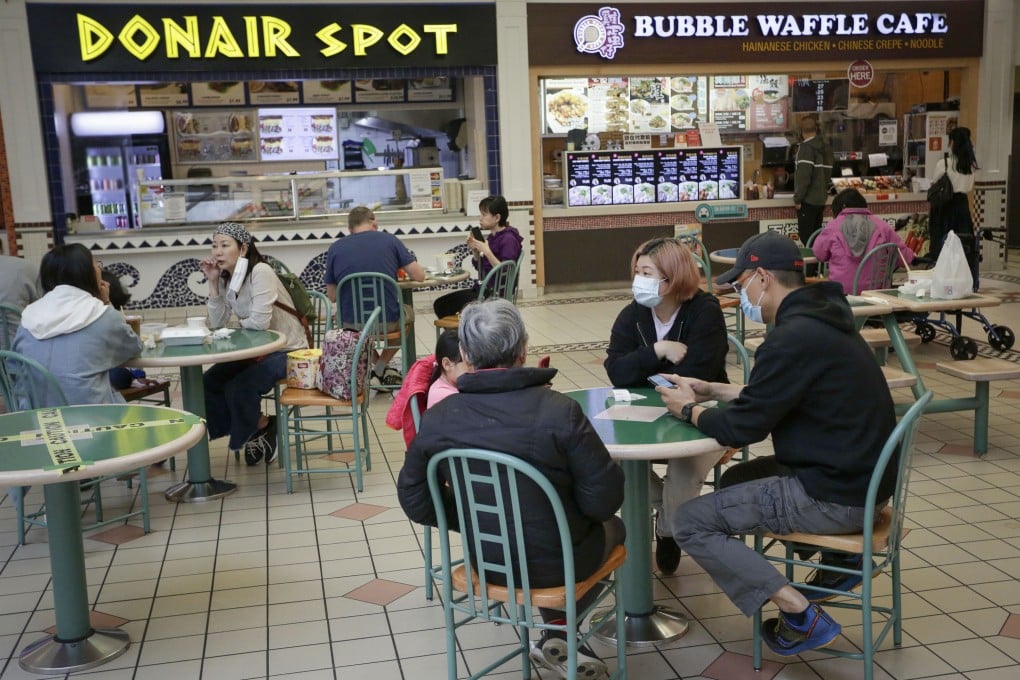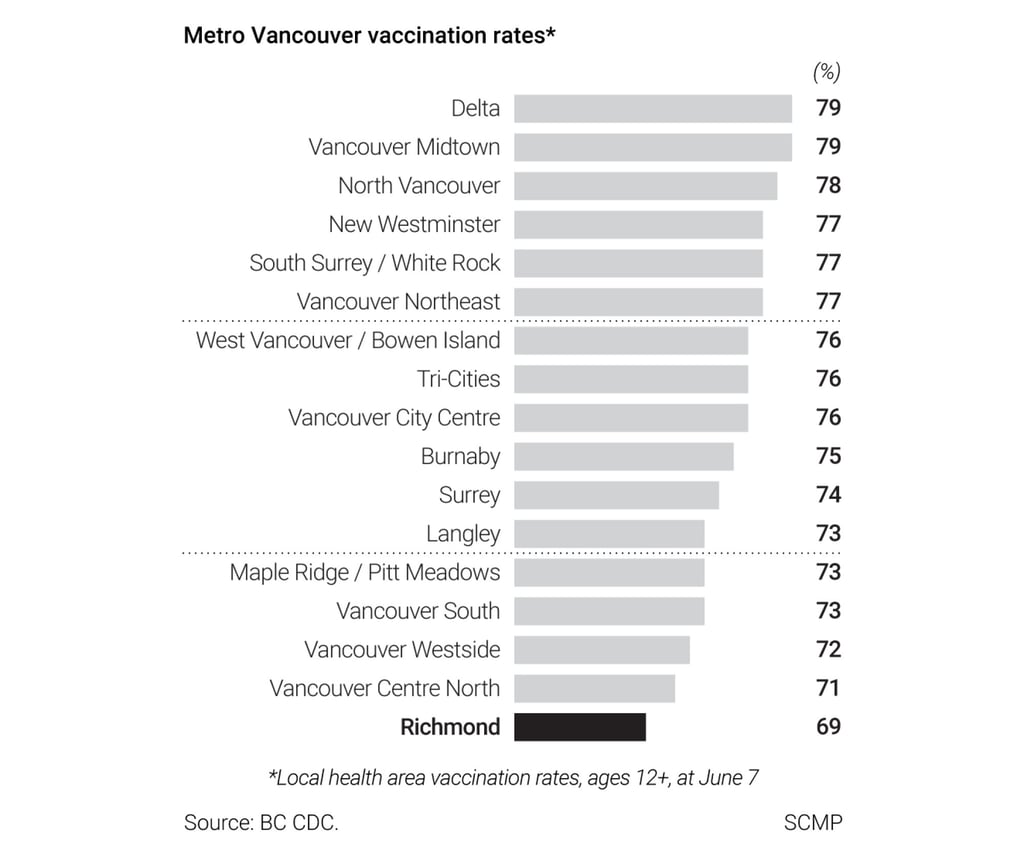Coronavirus: Canada’s most Chinese city has the best pandemic performance in its region – and the worst vaccination rate
- Richmond’s Covid-19 case rate is far better than other cities in the Metro Vancouver region, but its first-dose vaccination rate of 69 per cent is the lowest
- Authorities have been targeting the apparent hesitancy, which has echoes in Hong Kong, with Chinese-language outreach and other targeted measures

But data now shows that the city also has another, less laudable title as the region’s least vaccinated area.
Dr Kenneth Fung, a clinical professor at the University of British Columbia’s school of population and public health believes neither is a coincidence.

This echoed low vaccination rates in Hong Kong, said Fung. Richmond has the region’s densest population of Hong Kong immigrants and their descendants. The 23,000 Hong Kong immigrants in Richmond make up about 12 per cent of the population of about 200,000.
“Vaccine hesitancy is high among the ethnic Chinese community … [this] may be due to the many negative incidences reported daily in the Hong Kong newspapers which have a wide readership in Richmond,” said Hong Kong-born Fung. “Many have taken the wait and see attitude in approaching the decision for the vaccinations.”